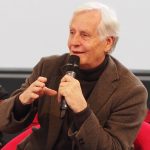Lecture to mark German Unity Day, featuring
Gesprächsleitung
Professor. Dr. Christoph König, Osnabrück University
Our perception of other people depends a great deal on self-perceptions, which in turn reflect the view of others whose self-reflection is symmetrically subject to the same heteronomy. To unravel this tangle of interactions and make it accessible to critical judgment, the tangle’s genesis must be carefully reconstructed. This is particularly the case for the perceptual relationship of larger groups of people, in which overlapping reactions usually instinctively ossify into bluntly conflicting stereotypes. The larger these groups are, the more readily mutual allocations of identity become set, as seen in the example of the relationship of the sexes. It is tempting to simply deny the contrast as such or at least to doubt its validity. But there is little knowledge gained in each case. After all, false ideas often also owe their sustained impact to a buried truthfulness anchored in particular experiences. This circumstance should be systematically taken into account here, by interpreting the French image of Germany, with all its apt characteristics, inconsistencies, and occasional distortions as the result of a succession of historical constellations of perceptions, and tracing it stroke for stroke. The main concern was to break the anachronistic compulsion to repeat, and to provide a differentiated access to experienced reality. Only then could the subtle play of contrasts emerge, which routinely turn attraction and repulsion, recognition and rejection, and even love and hate, into each other. Professor Heinz Wismann, born in Berlin in 1935, is a philosopher and philologist whose key research areas are hermeneutics and the history of science. After teaching at the Sorbonne from 1961, he was appointed to the École des Hautes Études en Sciences Sociales, Paris, in 1978, where he established a teaching and research program on the theory of the humanities. He also led the Institut für Interdisziplinäre Forschung (FEST) in Heidelberg from 1991 to 2000. In 1986, he established the “Passages” series at the Éditions du Cerf. His latest book, Penser entre les langues, was published by Albin Michel, Paris, in 2012; he won the Charles Veillon European Essay Prize and the 2013 Luxemburg Peace Price.
October 3, 2018, 11 am, council meeting chamber of the Town Hall, Markt
Picture gallery
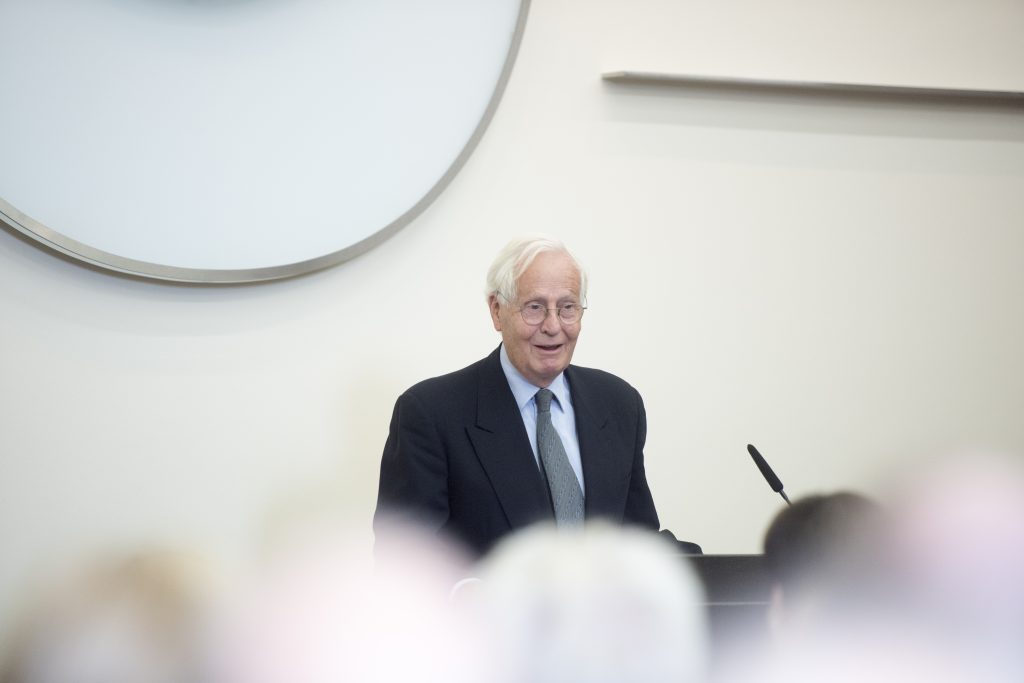
Prof. Heinz Wismann, © Osnabrücker Friedensgespräche | Uwe Lewandowski 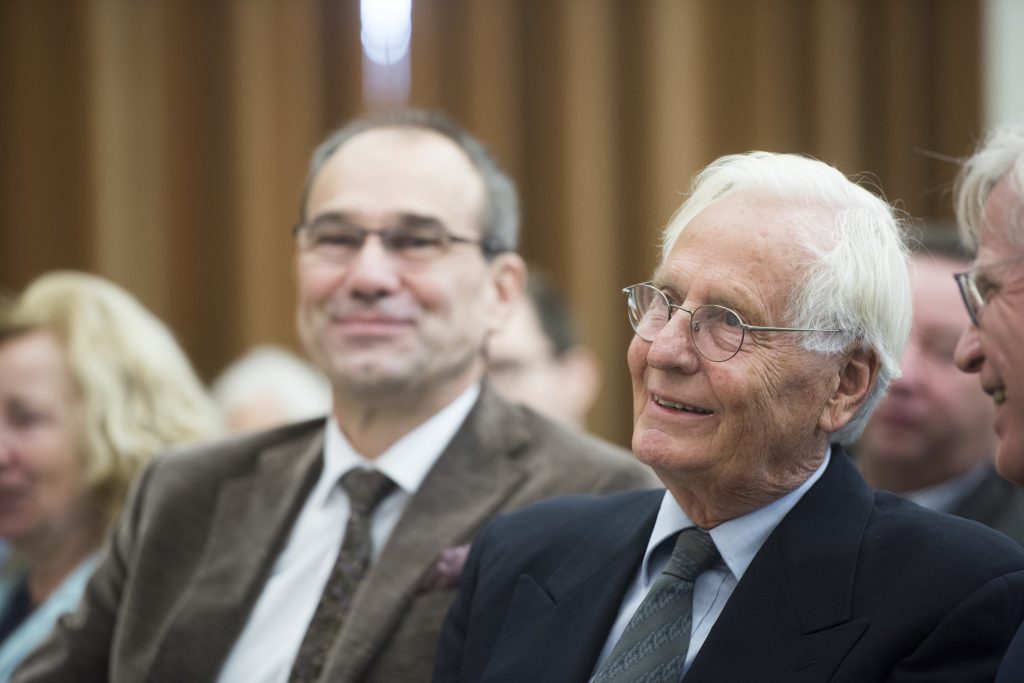
Prof. König und Prof. Wismann, © Osnabrücker Friedensgespräche | Uwe Lewandowski 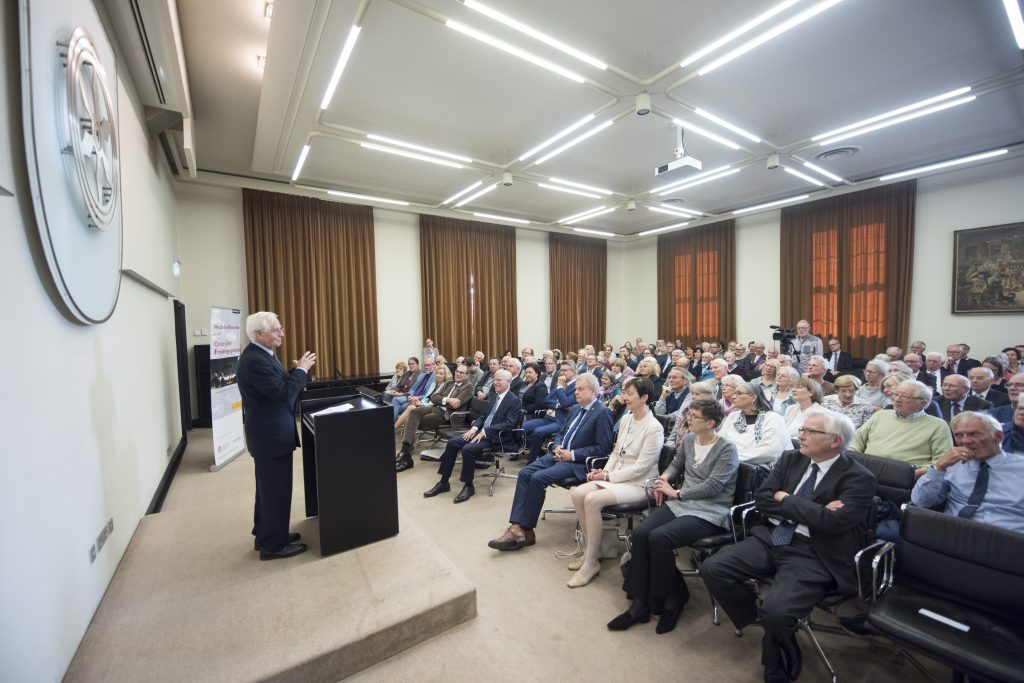
Prof. Wismann beim Vortrag, © Osnabrücker Friedensgespräche | Uwe Lewandowski 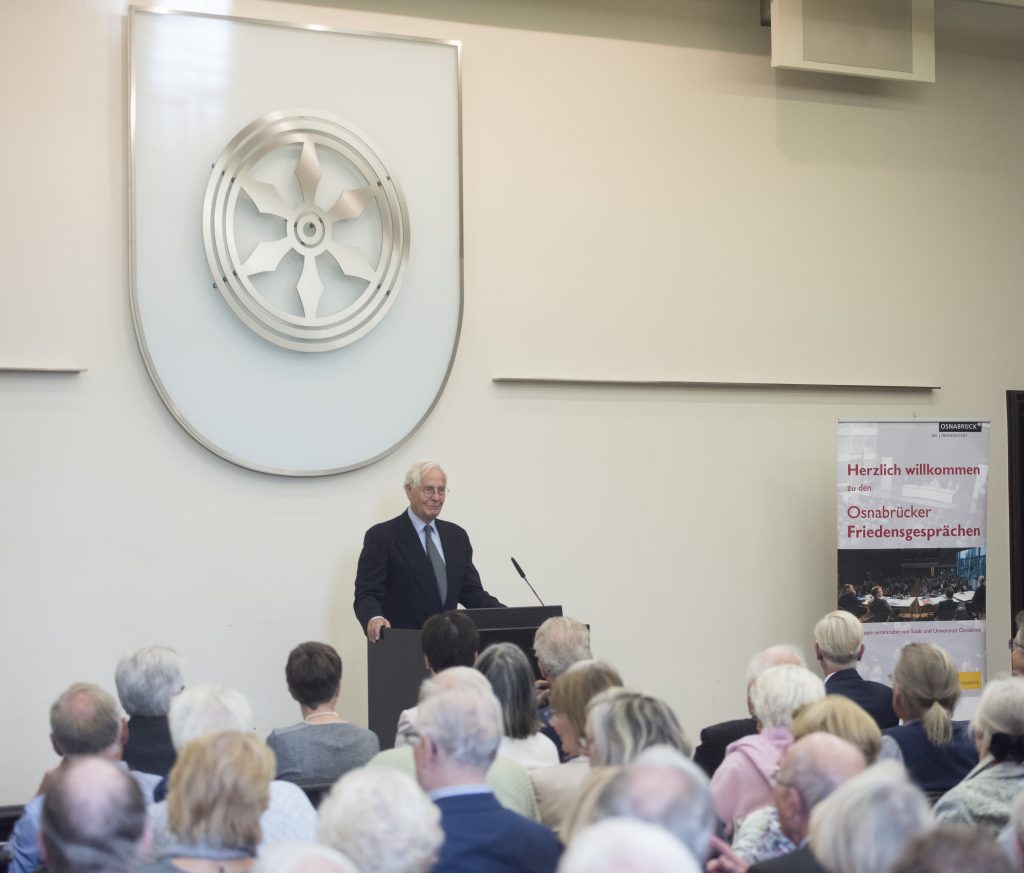
Prof. Wismann vor vollem Saal, © Osnabrücker Friedensgespräche | Uwe Lewandowski 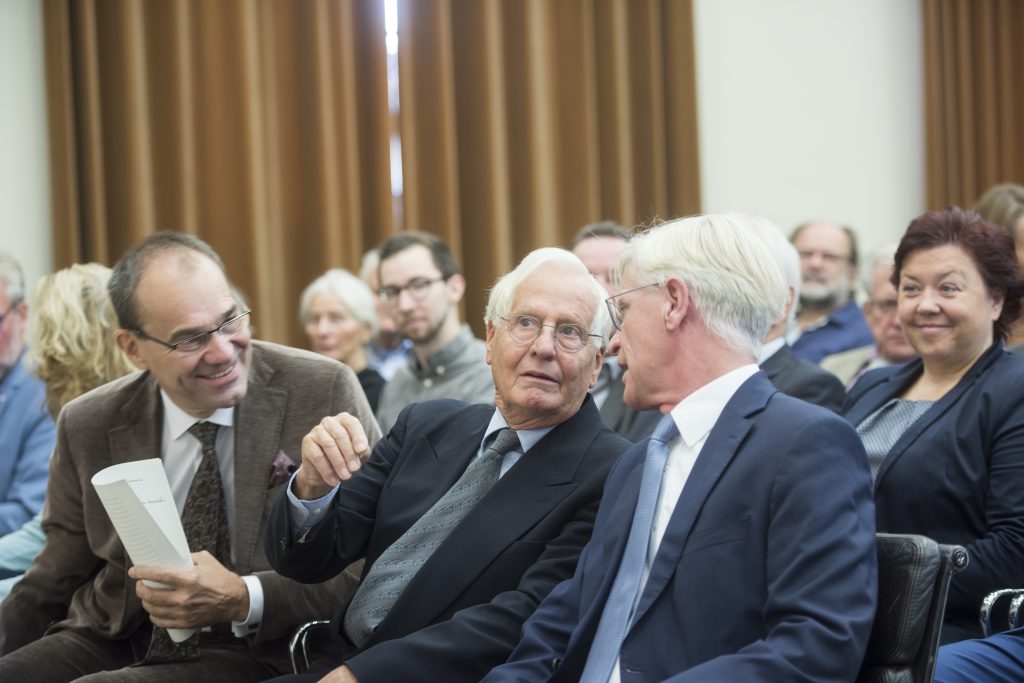
Prof. König, Prof. Wismann und Herr Jasper, © Osnabrücker Friedensgespräche | Uwe Lewandowski 
v. l.: Prof. Dr. Christoph König, Katharina Meyer, Prof. Heinz Wismann, Prof. Dr. Martina Blasberg-Kuhnke, Burkhard Jasper, Prof. Dr. Wolfgang Lücke, Prof. Dr. Reinhold Mokrosch, © Osnabrücker Friedensgespräche | Uwe Lewandowski
© Osnabrücker Friedensgespräche | Uwe Lewandowski

